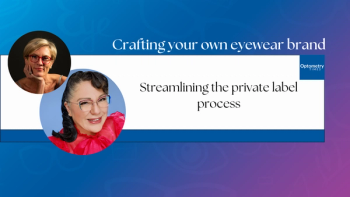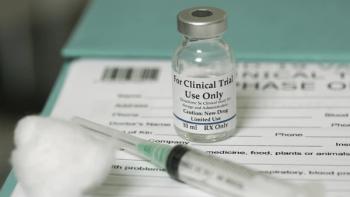
Q&A: Rohit Sharma, OD: President, Southern Eye Specialists, Atlanta, GA
Optometry missions, salsa dancing, customer service, and partying in Thailand
Where did you grow up?
I grew up in Nairobi, Kenya. At age 13, I came to the United States and grew up in San Diego. I did my undergrad in northern California at Berkeley, went to Boston to do my doctorate, and moved to the Philadelphia area to practice optometry right out of school. I practiced there for five years. In 2004, I came to Atlanta and have been practicing private optometry for the majority of that.
How did your initial VOSH experience keep you working with developing countries?
I’ve always known the need for eye care. Growing up in Kenya, a lot of people are impoverished and have a hard time accessing healthcare. My first mission in remote Chetumal, Mexico, was a fantastic experience…the gratification you get seeing people smile. I met a lady who was 90 years old, and the glasses she had were beat up, broken, taped-she had them like that for 50 years. It was ridiculous; how come she could not get another pair of glasses? This was an injustice to its core. From then on, I dedicated myself to helping others, and that led me to a second mission. You get greater gratification helping people in that part of the world as opposed to what I do on a day-to-day basis because what we do is expected of us. When you go to other parts of the world, it’s never expected, but it’s appreciated. Just the difference puts everything in perspective.
Previous Q&A:
Why did you return to Kenya in 2002?
In 2002, I was working in Reading, PA. I got bit burnt out working in commercial optometry, and I was given the opportunity to work with missionaries and nongovernmental organizations. My dad was involved in running eye clinics in three different countries, and he needed help. I worked six weeks in Tanzania and two weeks in Kenya and Tanzania. It was fantastic-I was examining 350 patients a day, providing refractive prescriptions. I saw things that you can never see in the United States. You have a real appreciation for what we have and the simplicity of life. These patients will sit in a room for eight hours not complaining before they see the doctor. From a personal point of view, whatever I contributed I think I got 10 times back out of it.
What’s something your colleagues don’t know about you?
That I’m very passionate about what I do. I was born for optometry. The other thing my colleagues don’t know about me is I love to dance, and I love Latin music. I used to dance in the exam room between patients to learn my routine. [Laughs] Salsa is my favorite. I love hiking. One of the things on my bucket list that I accomplished on February 18, 2014, was summiting Mt. Kilimanjaro. On one of worst nights ever, we had to walk through a blizzard. Up there at 19,000 feet, the snow comes down fast; you couldn’t see 100 yards in front of you.
Why do you come back to having a private practice?
My family is here in Atlanta. I love business in general, and I love striving to make a profitable business by providing the best healthcare. My mission statement in my office is to provide the best eye care in the city of Atlanta in the best atmosphere possible. Every day, I strive to be better than I was the day before.
What are the hallmarks of excellent customer service?
My answer to that is a smile. We forget to smile in today’s world. We forget to say thank you, we forget to say please. In my practice, we come out and greet our patients with a smile; we say hello as if it’s a family atmosphere. We treat all our patients as if they were our family. If we treat them like gold, they will remember you forever, and we have patients coming to us year after year. Our practice is celebrating 59 years, and I’m the third OD to take over.
What do you look for when it comes to staff?
I look for personality. You can’t buy personality, but you can train them to do what you want. Work ethic is important because you can’t train someone to have a work ethic. Staff really want to be there. If they are present only as a human body to get a paycheck, that’s doing an injustice to the business and to patients. I stay away from those personalities because that’s what you’re going to see in an interview.
What would you change if you could do your life over?
I don’t think I would change anything because I’m a very optimistic person. I think we’re brought into this world for a particular reason. I think my previous experiences have made me the person I am today. I would pay a little more attention to certain things as you were growing up that your parents told you. I have no regrets, optometry has treated me well, my personal life has had its ups and down like us all, but I think these are lessons that have been deliberately been placed on me to make me the person I am today.
What’s your guilty pleasure food?
My guilty pleasure is I love a good glass of Scotch. Whisky for me is one of God’s greatest creations. I love Indian food and my being Indian I think it’s my call. It’s so flavorful, it’s got a lot of spice to it. It brings all the essence of life in somebody. I love Thai food…Thai food is one of the best cuisines for me…I’m more of a savory guy than a sweet guy.
Related:
What’s one thing you’d change about optometry as it is now?
The heavy involvement of commercialization of optometry. The advent of box chains has devalued the profession. We are one of the few professions that have cheapened and devalued the business side of medicine-you never see it in primary care. No one says, “Go see that doctor. As long as you get a prescription and buy a bottle of cream from them, it’s free.” Everybody’s quick to make a sale, but nobody says, “This patient is spending his hard-earned money. Let’s fit him with the best product available, not the best product they have in the store. Online retailers and box store employees are paid heavily on commission to spit out a sale. These are not skilled people; they are taught to sell but not taught to treat patients.
What’s the craziest thing you’ve ever done?
On our honeymoon in Thailand, another couple invited me and my wife to the “Full Moon Party.” We got on a speedboat, and we were doing 50 or 60 miles an hour into oblivion, into darkness. I’m thinking this guy’s going to kill me-he’s going to cut me up and throw me to the sharks. Almost 45 minutes later, we get to an island with a rave party. There were people with fireballs twisting around and electronica music everywhere. It goes on until 4 a.m. You’re standing in the ocean with 300 people, half of them drunk, and wondering what’s going on in the water. My wife looked at me and said, “I’m so going to shoot you for agreeing to come here.” But we look back, and we had a great time.
Newsletter
Want more insights like this? Subscribe to Optometry Times and get clinical pearls and practice tips delivered straight to your inbox.













































.png)


